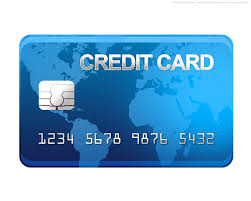
Recently released Federal Reserve data showed a 9.7 annual percent increase in the amount of credit extended to customers. Revolving credit – bank-issued credit cards and retail store cards – showed an annual rate increase of 7.4 percent. Those numbers were almost three times higher than the 2.5 percent hike recorded in June. And for all of last year, the increase was only 1.3 percent. Even that was an improvement over 2009 and 2010, when growth was flat – as in most sectors of the economy.
The outlook for future growth is promising. CardHub, a website for consumers looking for the best deals in cards and rates, is looking for a $41.9 billion net increase in credit card debt this year. That’s 8 percent more than in 2013 and 14 percent over 2012.
But the growth shows a more cautious use of credit cards, according to Theodore Iacobuzio, vice president of global insights for MasterCard. He believes the unfettered love affair that kept people using their credit cards freely before the recession is over. “They’re not going back to how they used them before,” he said.
Pre-crisis, average American households had about seven credit cards, not counting debit and store cards. Now, they’re using the cards as tools to pay off debt and they’re paying off that debt faster than before.
Wish fulfillment has taken a backseat to the use of cards to help manage the new economic realities in many families. That’s reflected in the record low numbers of those who are delinquent in payments. Two factors are at play here, the first being the fact that many Americans have gone to great lengths to cut their credit card debt and are not replacing it with new debt. The second effect is from a greater number of consumers who defaulted during the economic crisis and cannot replace their credit cards. From April through June this year, only 2.25 percent of credit card accounts were in arrears. That’s the lowest since the Federal Reserve began tracking the figure in 1991.
Many consumers are playing it safe with prepaid cards from outlets such as WalMart and Green Dot. They have the advantage of being able to check their balances online or via text messages and avoid the fees often associated with cards issued by banks.
That option helped many Americans through the recession, especially those who were having a tough go in the job market.
Although the difficulties the recession created were a headache for many American families and came on too fast for pre-planning, they may have forced a more reasonable approach to debt. Consumers who got burned are being more careful of the flames and thinking twice before they blithely take their credit cards out of their pockets.
.



